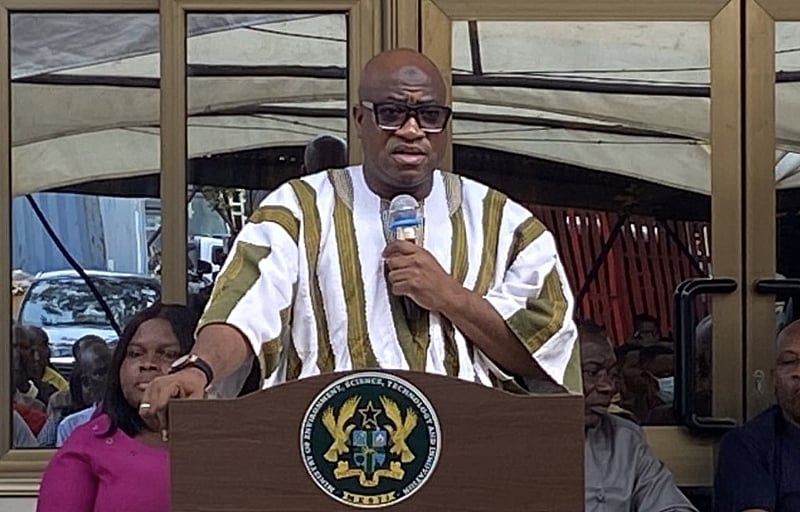The ongoing debate between Ghana’s ruling New Patriotic Party (NPP) and the opposition National Democratic Congress (NDC) regarding the country’s economic challenges has intensified following recent statements by the Minister of Environment, Science, Technology and Innovation, Ibrahim Murtala Mohammed. The Minister, speaking at an event in Geneva, Switzerland, acknowledged the significant impact of the Russia-Ukraine war and the COVID-19 pandemic on Ghana’s economy. This acknowledgement prompted criticism from the NPP, who accused the NDC of performing a U-turn, alleging that the opposition party had previously refused to acknowledge the role of global factors in Ghana’s economic difficulties. The core of the disagreement lies in the attribution of responsibility for the extent of Ghana’s economic downturn.
Minister Mohammed refuted the NPP’s accusations, clarifying the NDC’s stance on the issue. He emphasized that the NDC never denied the impact of global events, particularly the pandemic and the war, on the Ghanaian economy. Instead, he argued that the NDC’s contention was with the NPP’s attempt to solely blame these external factors for the entirety of Ghana’s economic problems. The NDC maintained that while these global events undoubtedly played a role, the NPP’s mismanagement of the economy significantly exacerbated the situation, leading to a more severe downturn than experienced by other comparable nations.
The crux of the NDC’s argument rests on the comparative performance of neighboring countries facing similar global challenges. They posit that while these countries also experienced the economic fallout of the pandemic and the war, their governments managed their economies more effectively, mitigating the negative impacts to a greater degree than Ghana. This, according to the NDC, demonstrates that the NPP’s policies and economic management were primarily responsible for the depth of Ghana’s economic woes, rather than simply the external shocks themselves. The NDC’s argument hinges on the premise that effective governance can mitigate the impact of external shocks, and the NPP’s failure to do so demonstrates their inadequacy in managing the economy.
The NPP’s position, on the other hand, emphasizes the unprecedented nature of the global challenges posed by the pandemic and the war in Ukraine. They argue that these events created extraordinary economic pressures that were difficult for any country to navigate, and Ghana was no exception. The NPP likely points to the global economic slowdown, supply chain disruptions, and inflationary pressures as evidence of the widespread impact of these events. They may also highlight the measures they implemented to cushion the blow of these external shocks, such as social intervention programs and economic stimulus packages.
The debate between the two parties highlights a fundamental disagreement over the attribution of causality in complex economic situations. While both acknowledge the role of external factors, they differ significantly in the weight they assign to these factors versus internal policy decisions. The NPP leans towards emphasizing the unavoidable nature of the global economic downturn, while the NDC emphasizes the government’s responsibility to mitigate the impact of these external shocks through sound economic management. This difference in perspective reflects the inherent tension between acknowledging the influence of global forces and holding governments accountable for their domestic policies.
The ongoing economic challenges facing Ghana underscore the importance of this debate. Understanding the root causes of the economic difficulties is crucial for developing effective solutions. Whether the focus should be on navigating external shocks or addressing internal policy shortcomings is a central question that will continue to shape the political and economic discourse in Ghana. The competing narratives offered by the NPP and the NDC reflect differing perspectives on the role of government in managing the economy and responding to global crises. Ultimately, the citizens of Ghana will judge the merits of these arguments based on their lived experiences and their assessment of the government’s performance.














